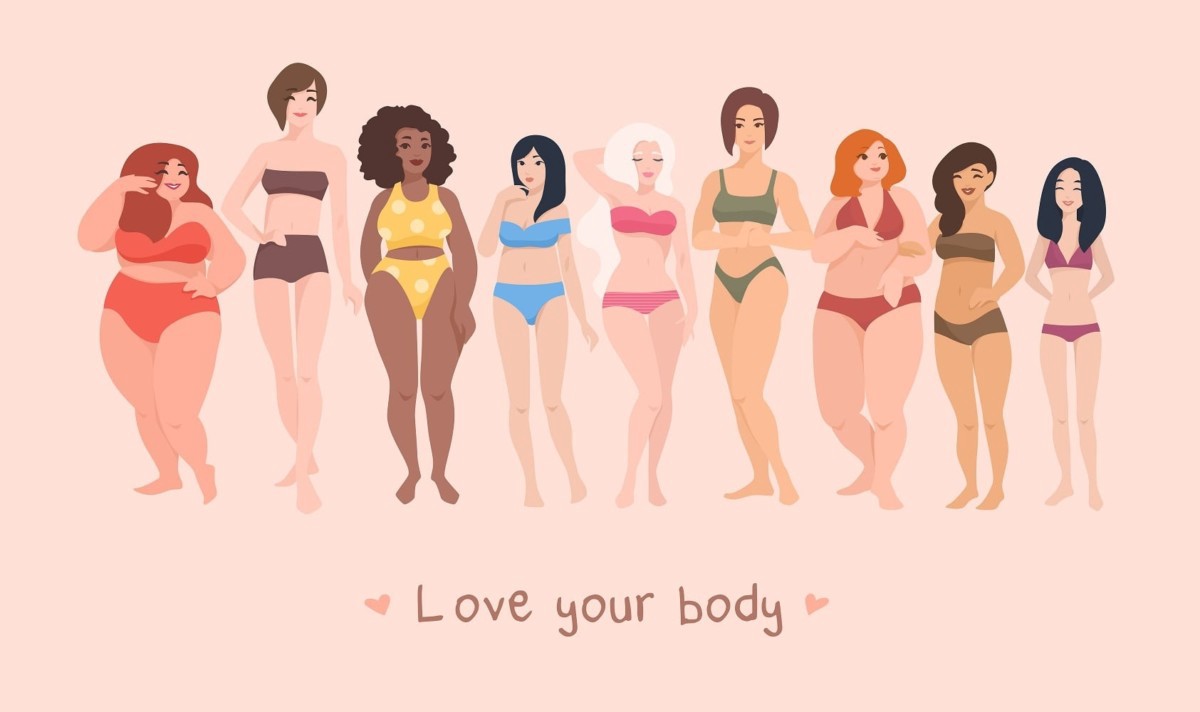The Bourke Accounting Book Club is back in session with JD Salinger’s Franny and Zooey keeping us company. JD is my favorite nonprolific reclusive writer of all time, so I’m digging it. Yesterday, we delved into the subtleties of literature over Panera Bread. My co-workers ate salads ladened with mysterious fruits and little-known vegetables as I left buttery fingerprints from my Classic Grilled Cheese (with extra cheese) on my book. While my co-workers argued points of dialogue, I thought about malnutrition.
When we think about malnutrition, we generally think of faraway countries and pallid Oliver Twist extras, begging in the streets for a shilling. We think of the 37 million Americans who aren’t getting enough to eat as a result of limited money and inaccessibility to food banks. At the grocery store, we don’t label a well-appointed, fit young person or a larger store clerk as people suffering from malnutrition. However, as obesity and lower-nutritional food choices become ever more rampant in this country, we’re embarking on yet another crisis.
Just like you can’t judge a book by its cover, you can’t judge a malnourished person by a waistline. If you’ll remember 8th grade health class, malnutrition means that not enough of the right foods are eaten (we had the food pyramid, but I think they use a plate graphic these days). As of right now, 85% of Americans aren’t getting the proper, FDA recommended, vitamins and minerals from food for healthy living (TheGuardian.com). In addition, vast amounts of children are suffering from “hidden hunger,” or micronutrient deficiency, which means that the foods they are eating “are calorie dense, but nutritionally poor” (TheGuardian.com). As a kid, I was told that if I didn’t finish my vegetables, I wouldn’t grow up to be big and strong – what are these kids being told?
Besides causing us to look like a Dickens’ refugee, malnutrition does incredible internal damage. By simply eating the wrong things, we are afflicted with tiredness, inability to concentrate, depression, immune system problems and, eventually, difficulty breathing and heart failure (Medicalnewstoday.com). As issues create a sicker, weaker population, it affects the US economy, as well. The productivity of malnourished workers isn’t as high as nourished ones and sick workers don’t go to work. Also, undernourished folks cost the country $157 billion per year in medical expenses (Mediaroom.com). While it won’t kill us to eat a carrot, not eating one could.
With our busy lives and bizarre new world, we want comfort. Unfortunately, this desire for comfort doesn’t end with a fluffy sweater. Research has shown that “70% of fast food meals consumed in the US are of poor nutritional value” (USNews.com). Since almost half of all Americans eat fast food every day (USNews.com), we are paying for the privilege of being poisoned. People say that eating healthy is too expensive. That’s true. A Harvard study has discovered that healthy meals cost $1.50 more a day than fast food (HSPH.Harvard.edu). But what about the hours needed to cook healthy, cheap meals at home? I Goggled cheap, healthy, fast meals and found 643,000,000 entries in .59 seconds. I think it’s possible to avoid McDonald’s, I really do.
We aren’t good for anything if we’re not good to ourselves. Our mental and physical health are being damaged by the plastic foods we’re ingesting. It’s time to put down the spork and pick up real food.
Bourke Accounting bookkeepers and tax preparers know that they can’t meet your needs with clogged arteries. Bourke Accounting pros also know that their cognitive abilities are lessened with a brain full of additives. Sit down with a Bourke Accounting expert and see how their clean living can benefit you. Also, they’re not shy about sharing their secret, healthy recipes!
Come see us any time. Our number is 502-451-8773 and don’t forget to visit our website at www.bourkeaccounting.com. See you soon!
Written by Sue H.
We look around our burning and confused world and ask 2020, “What’d we ever do to you?” There’s a golfer hiding in the White House basement, busily retweeting racist things (and claiming ignorant innocence later). Everyone’s killing each other. News sources are warning of a second wave when the first hasn’t even broken yet. In early May, one third of Americans reported feeling anxiety and depression (USNews.com). We are undeniably sad and lost.
Because of these terrible facts, I want to get a little weird and a little unnecessary now. If you feel like forgetting things for a minute, come along and get weirdly unnecessary with me:
1) Don’t throw money down the toilet. As you know, a lot of us are financially damaged, however, every time you sit down, you’re sitting on a goldmine! According to the CDC, nearly half a million people suffer from Clostridioides difficile infections, a bacterium that causes severe gastrointestinal distress, each year. OpenBiome is a nonprofit organization that is combatting this ailment with their cutting-edge research, fecal transplants and a little help from you (OpenBiome.org). With OpenBiome and your poop donations, you can earn up to $13,000 a year and serve the public! Not only that, but OpenBiome offers prizes to “donors who make the most donations [and] provide the biggest sample” (IFLScience.com)!
2) Let’s learn from the bonobos! Bonobo chimpanzees are cute furry guys who share more than “98 percent of our genetic profile” (ScientificAmerican.com). And bonobos do like to share: they share food, parenting responsibilities and they really share their bodies. Unlike other chimps, bonobos aren’t aggressive. For example, if food is offered to a group of bonobos, they won’t fight over it; instead, everyone participates in a lovefest and then eats dinner (ScientificAmerican.com). Every conflict that these chimps face is met with lovemaking and grooming rather than blood and teeth. Also, their orientation is fluid to the point of nonexistence – if a female is angry with another female, let’s just say the ill-will doesn’t lead to a brawl, as they’re otherwise occupied. And they’re friendly – if a strange bonobo wanders into an established group, there is no vying for dominance. I think you know how the group gets to know the stranger (ScientificAmerican.com) – bonobos are true swingers (couldn’t resist). Two last things: bonobos won’t practice their conflict resolution skills with any member too closely related to them and they like passionately kissing (ScientificAmerican.com)! So, the next time you want to fight, think: What would a bonobo do?
3) That is your shirt! Have you ever seen someone wearing a shirt that looks exactly like your lost 1972 Stones concert tee? If you lost luggage at the airport, it very well might be your shirt. Airlines keep unclaimed luggage for five days; after that, they either donate the bags or sell them to a company like The Unclaimed Baggage Center (Science.HowStuffWorks.com). Want a calf hair belt or diabetic socks? The Unclaimed Baggage Center has both in stock right now!
Knowing about bonobos won’t change our lives, but it’s good that there are still mildly weird and harmless things out there. And I could be wrong, maybe learning about unclaimed baggage will inspire our next peacemaker to bring about an era of harmony and respect.
Although our Bourke Accounting pros are strong, they need a break from harsh reality once in a while, too. So, when you’re sitting across from your Bourke Accounting bookkeeper or tax preparer, don’t hesitate to share a little-known nugget of information. While Bourke Accounting experts know a lot, they’re always interested in learning more.
Come see us any time. Our number is 502-451-8773 and don’t forget to visit our website at www.bourkeaccounting.com. See you soon!
Written by Sue H.
Bourke Accounting doesn’t believe in body shaming. This is not because Bourke employers fear lawsuits; this is because body shaming is cruel, infantile and inappropriate. In addition, my Bourke boss, Bill, understands that a hostile work environment inevitably leads to a decrease in work production. While Bill might be a decent fella, the bottom line is still definitely important to him.
Unfortunately, not all workplace cultures avoid body shaming. In fact, at some places, body shaming is so rampant and casual that one begins to ignore it. For instance, I once had a job where comments about my weight were a daily occurrence. Being on the thinner side, I was constantly accused of being on drugs (I’m not) or having an eating disorder (I don’t). It got to the point where I began absently responding to the nickname, “Bones.”
While being equated to the Crypt Keeper didn’t make me feel great, at least I was openly insulted. For people in heavier bodies, an insult is often wrapped in “good” intentions. For example, during lunch, a co-worker can “sweetly” ask a heavier co-worker if s/he really needs another slice of pizza. The question is obviously offensive and publicly humiliating, but the co-worker can argue that it was only asked out of concern for a colleague’s health. Call me Crypt Keeper all day if it means I won’t be subjected to wide-eyed, “oops, didn’t mean to” abuse.
In early 2020, USNews.com reported that more than 40% of Americans are obese, with 1 in 10 qualifying as severely obese. Because of these statistics, it would make sense if weight discrimination in the workplace was declining. However, that’s not the case. According to a study by the National Association to Advance Fat Acceptance, “obese adults are 37 times” more likely to endure bias regarding employment; the severely obese are 100 times more likely (WestSoundWorkforce.com). According to Forbes.com, employers could possibly justify not hiring larger applicants, as the losses for “obesity-related absenteeism is estimated to be $8.65 billion per year.” To make everything just perfect, another study found that “61% of [poll] respondents did not consider negative remarks about weight to be offensive” (Forbes.com).
Why does body shaming exist in professional environments? The simple answer is because it’s “legal in almost all states” (Bustle.com), except for Michigan and a few scattered cities (Time.com). We all know that discrimination based on sex, race and religion is illegal, but discrimination regarding weight is okey dokey. However, there are two occasions where this sort of prejudice wouldn’t stand. For example, if weight is only mentioned in connection with one sex, there could be a basis for a sexual harassment complaint (Bustle.com). The second circumstance is if the comments “could relate to someone’s disability status” (Bustle.com), as disability discrimination is prohibited under the Americans with Disabilities Act.
In my own situation, it must be admitted that my fellow employees were savages towards everyone. While I was made fun of for being too thin, my other co-workers were ridiculed for being too tall, too short, too heavy, too hairy or too stinky. We all know it’s not nice to speak negatively about a person’s appearance, so we shouldn’t do it – don’t make the workplace Eighth Grade – Part II.
Bourke Accounting professionals aren’t tacky and they know how to stay in their lane. No matter where on the spectrum your weight falls, you won’t hear about it from your Bourke Accounting bookkeeper or tax preparer. While Bourke Accounting specialists will have to ask you personal questions, your dietary habits will never be one of them.
Come see us any time. Our number is 502-451-8773 and don’t forget to visit our website at www.bourkeaccounting.com. See you soon!
Written by Sue H.
The other evening, after a busy Bourke Accounting tax season day, I didn’t feel like cooking (I don’t ever feel like cooking, but now I have a legitimate excuse). I stopped at one of my favorite take-out spots and was surprised to find a child behind the counter. She looked about 11 years old and she was courteous, accurate and efficient. I’ve been waited on by 30-year old adults who weren’t as together as this kid. As this has always been a family business, it finally dawned on me why people have kids in the first place. Free labor, right?
Actually, no. As it turns out, family businesses must pay their kids just like they would any viable person for the same work. However, as pointed out by The Kiplinger Tax Letter (Vol. 95, No. 2), there are some benefits to hiring your underaged offspring. Namely, “hiring your family can lower your payroll tax bill.”
If a wife-husband partnership hires their kids, there is no Social Security or Medicare tax due. In addition, “federal unemployment tax isn’t owed on their salaries until they reach 21” (Kiplinger). If the kids are under 18, these wages are “tax-deductible to your business, tax-free to [the children]…and you still get to claim [the children] as dependents” (Entrepreneur.com). That seems like a pretty sweet deal, actually.
Entrepreneur.com goes on to lend a vaguely sinister air to child labor when it is offhandedly stated that the IRS allows children as young as 7 to work for their parents. I would feel a little weird if a 7-year-old rang me up at the corner store (are 7-year-olds even potty-trained?), but according to the United States Department of Labor, this is indeed allowed. A parent can get their kids working at any age, as long as the job isn’t “mining, manufacturing or hazardous jobs” (Webapps.dol.gov).
Another interesting point about hiring family is that your better half and parents may also cut your payroll tax bill. According to the IRS, if you hire your spouse or parent, neither is “subject to the Federal Unemployment Tax Act.” While that’s a plus, I’m still left questioning the wisdom of hiring family.
I love my family, I really do, but working with/for them? Ah, thanks, no. I once played in a band with my brother and ended up threatening his physical person with a bass guitar, so you can see why this wouldn’t work for me. I’m not the only one who doesn’t think working with family is the best idea. USNews.com puts it very nicely: a round-the-clock viewing of your other half could transform the one you love into the one you can’t escape. Also, even with tax breaks, the headache of trying to convince your mother/employee that you’re not an infant anymore and that you know what you’re doing could be very trying.
If you own your own business, the idea of hiring family could be very attractive. However, before you do that, why not talk to a Bourke Accounting professional first? Perhaps, when your Bourke Accounting tax preparer and bookkeeper show you ways to save money that don’t include your payroll tax, you might rethink the pros and cons of working with your blood. Bourke Accounting experts aren’t family counselors, but listen to their advice and you probably won’t need one.
Come see us any time. Our number is 502-451-8773 and don’t forget to visit our website at www.bourkeaccounting.com. See you soon!
Written by Sue H.



